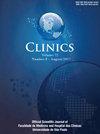Knowledge and attitude of deaf women in relation to contraceptive methods: A systematic review
IF 2.2
4区 医学
Q2 MEDICINE, GENERAL & INTERNAL
引用次数: 0
Abstract
Background
Communication barriers make it difficult for deaf women to access information about contraceptive methods, making them vulnerable to unplanned pregnancies.
Objective
To identify knowledge and attitudes of deaf women in relation to contraceptive methods.
Method
The authors conducted a systematic review of the literature, PROSPERO registry (CRD42021277635), conducted from August 2021 to April 2024. The included studies focused on knowledge and attitudes about contraception among women with deafness.
Results
Twelve articles were included, with a total of 2,641 participants and those reported low knowledge about contraceptive methods. Nine studies showed withdrawal, condoms, and oral contraceptives as the best methods that deaf women know. Five studies showed low knowledge about intrauterine devices and subdermal implants. The main reasons given for abandoning the method were reproductive desire and fear of side effects. The use of hormonal contraceptives was higher among adult women and, two studies showed that among teenagers the practice of withdrawal was higher than the use of condoms. The barriers most mentioned in the eight articles for the use of contraceptives were those of communication.
Conclusion
Knowledge of contraceptives among deaf women was low; however, the attitude of acceptance of the use of contraceptive methods was favorable, despite the little access to more effective methods, especially among adolescents. The factor associated with low knowledge evidenced in the systematic review was communication barriers.
失聪妇女对避孕方法的知识和态度:一项系统回顾。
背景:沟通障碍使失聪妇女难以获得有关避孕方法的信息,使她们容易意外怀孕。目的:了解聋哑妇女对避孕方法的了解和态度。方法:作者对2021年8月至2024年4月进行的文献进行系统综述,PROSPERO登记处(CRD42021277635)。纳入的研究侧重于耳聋妇女对避孕的知识和态度。结果:纳入文献12篇,共纳入受试者2641人,其中包括对避孕方法了解程度较低的受试者。九项研究表明,戒断、避孕套和口服避孕药是失聪女性所知道的最好方法。五项研究表明,人们对宫内节育器和皮下植入物知之甚少。放弃这种方法的主要原因是生育欲望和对副作用的恐惧。成年女性使用激素避孕药的比例较高,两项研究表明,在青少年中,戒除性行为的比例高于使用避孕套的比例。关于使用避孕药具的八项条款中提到最多的障碍是沟通障碍。结论:聋哑妇女避孕知识知晓率低;然而,接受使用避孕方法的态度是有利的,尽管很少有机会获得更有效的方法,特别是在青少年中。在系统评价中,与低知识相关的因素是沟通障碍。
本文章由计算机程序翻译,如有差异,请以英文原文为准。
求助全文
约1分钟内获得全文
求助全文
来源期刊

Clinics
医学-医学:内科
CiteScore
4.10
自引率
3.70%
发文量
129
审稿时长
52 days
期刊介绍:
CLINICS is an electronic journal that publishes peer-reviewed articles in continuous flow, of interest to clinicians and researchers in the medical sciences. CLINICS complies with the policies of funding agencies which request or require deposition of the published articles that they fund into publicly available databases. CLINICS supports the position of the International Committee of Medical Journal Editors (ICMJE) on trial registration.
 求助内容:
求助内容: 应助结果提醒方式:
应助结果提醒方式:


